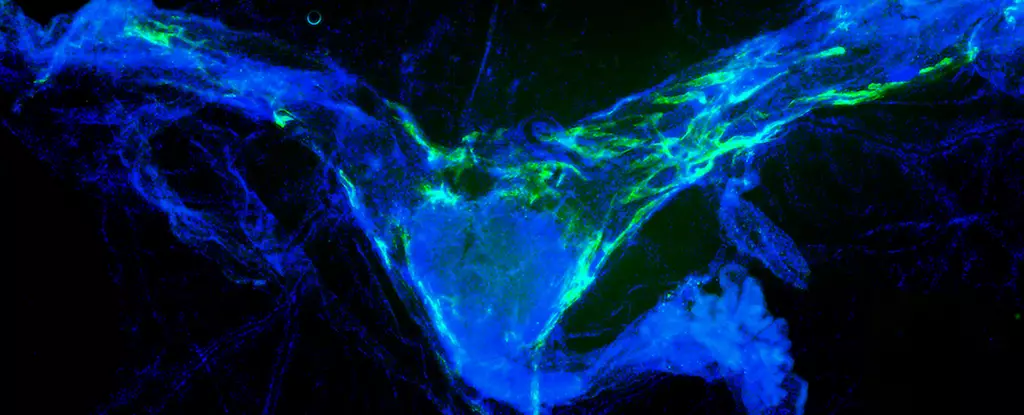As we navigate through the stages of life, the whispers of aging become harder to ignore, with one of the most tragic consequences being the gradual decline of our cognitive faculties. The insidious nature of neurodegenerative diseases such as Alzheimer’s casts a long shadow over not just older adults but their loved ones as well. What if the solution to this growing crisis lies in enhancing our brain’s natural waste management system? Recent research highlights a potentially transformative approach to addressing the cognitive decline that is all too common in aging populations.
Meningeal Lymphatics: The Body’s Unsung Heroes
At the forefront of innovation is the exploration of meningeal lymphatics, vessels that play a crucial role in maintaining brain health by facilitating waste clearance. Conducted by a stellar team of researchers at Washington University in St. Louis, the groundbreaking study uncovers how these lymphatic vessels have remained underappreciated until now. By focusing on their expansion and functionality through targeted protein treatments, researchers have demonstrated that we might be able to revitalize memory functions in aging brains—an idea that shatters the notion that cognitive decline is an inevitable part of aging.
Notably, the experiments demonstrated that treated mice exhibited significantly improved memory compared to their untreated counterparts. This reinforces an essential truth: maintaining the integrity of our brain’s waste disposal mechanisms may be pivotal in staving off the memory-impairing effects of age-related conditions.
Microglial Distress and Its Consequences
A significant point made in this research involves the role of microglia, the immune cells responsible for monitoring the brain’s environment. When these cells experience an overload of toxic waste, they send out distress signals manifested through proteins like interleukin 6. This situation draws a startling parallel to how a city fails to function when its waste management services are overwhelmed—garbage piles up, leading to chaos. This study not only illustrates how boosting lymphatic function elevates memory capabilities but also addresses the aftermath of overwhelmed microglia, which can inflict irreversible damage on brain tissues.
The study’s findings raise crucial questions about the broader implications of supporting our brain’s cleaning systems—if we can temper microglial distress signals, we might also curtail the detrimental toll they exact on cognitive functions.
Breaking Down the Blood-Brain Barrier
One of the most compelling aspects of this research is the discovery that the meningeal lymphatic vessels exist outside the brain, allowing for straightforward targeting without the cumbersome challenge posed by the blood-brain barrier. This realization is monumental because the current medical landscape often stumbles over this physical barrier when attempting to introduce therapies for neurological disorders. Indeed, a better understanding of how to manipulate these external lymphatic networks could usher in an era of innovative treatments for cognitive decline.
Neuroscientist Jonathan Kipnis, who played a significant role in this research, aptly notes that enhancing the health of this lymphatic system could yield benefits not just in memory improvement but also in our approach to treating age-related cognitive decline. The study effectively opens a window for researchers, signaling a new frontier to remedy the lamentable deterioration of our memory with age.
The Road Ahead: Innovation Over Resignation
While we may currently lack the ability to revive dead neurons or reverse significant damage, understanding the intricacies of enzymes like interleukin 6 reveals that we may still influence brain health in powerful ways. These insights challenge the resignation often felt about cognitive decline, encouraging a more proactive mindset about brain health across all ages.
The implications of the study resonate beyond laboratory findings; they call for a societal shift in how we view aging. Rather than succumbing to defeat as cognitive abilities fade, it urges us to engage in discussions centered around innovation and proactive measures that can fortify our mental faculties. Cognition should not be an area resigned to the whims of time but rather a domain where continuous improvement is not only possible but essential.
The tide is changing, and with a focus on our brain’s lymphatic functions, we stand on the precipice of potential breakthroughs—breaching the fortress of failing memory and restoring a glimmer of hope for millions.


Leave a Reply